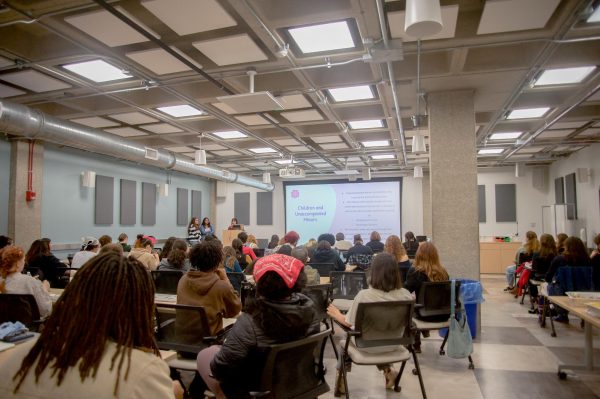Lectures Should Prioritize Professor Input Over Student Opinion
During course registration last spring, I was embarrassingly only able to secure two seats in courses that I was interested in. As an undecided rising second-year, I didn’t have much standing in the registration process and thus ended up returning home for the summer with a meager half of the following year’s academic plan in place.
One of these courses, however, was a lecture I was immensely grateful to have gotten a seat in. It was a popular class in a subject that I was interested in, taught by a professor with a long list of impressive credentials and academic publications in his staff bio.
All summer, I cherished my seat in this course, and when I returned to Oberlin in the fall and the day finally came that I could attend the first class, I walked into a packed room — burgeoning under an increase in admissions — and watched despondently as the tone of the class was set.
The professor, young-ish and eager to connect with his new cohort of students, spent the hour not so much lecturing, but wondering aloud and handing over the ideas he wanted to cover to the students in the class. Each time he would do this, a field of hands would shoot up — more often than not from the same pockets of the room — followed by the same voices eager to have their opinions heard on a Thursday afternoon. I realized then what many of you may find to be true about at least one of the courses you’ve taken at Oberlin so far: my highly qualified professor was not going to be teaching this class — his students with the most long-winded thoughts were.
I’ll admit that part of the reason I hold such a grudge against these classes is because I am one of these students. Years of teacher’s pet domestication and an only child’s propensity to talk to adults have turned me into somewhat of a low-level conversational narcissist. From grades one through six, the most common comments on my report cards had something to do with my inability to keep quiet or sit still. And while it’s true that I do sometimes talk to fill the awkward silence of a mute classroom, most often, it’s because I just can’t help myself.
Throughout my time in high school, a mantra I heard whenever someone would complain about having to do “useless” math or write an essay on a book no one knew the name of was that the purpose of school was to teach you “how to think.” I think this trend of students running classes may be an extension of that idea. In college, I’ve heard the theory that in order to teach someone something, you can’t simply tell them what to think; rather, you have to lead them to theoretical conclusions on their own so that they may learn how to approach a problem and engage in academic discussion. This is particularly true in the humanities, where there are supposedly “no right answers” (although, in my opinion, plenty of wrong ones), but it also applies to more quantifiable subjects like mathematics or language, in which teachers will occasionally spend large swaths of time making a group of confused semi-adults stare at a chalkboard until someone meekly hazards a guess out of discomfort.
I strongly dislike this style of teaching, not only because it encourages my own bad habits, but also because personal experience has led me to observe that classes which clearly delineate what students can contribute and what professors will have to teach are generally the most productive and conducive to a student’s progress.
In fact, it was through this rigid teaching style that I first learned what good writing should look and sound like. In my freshman year of high school, I had an English literature teacher — incidentally, an Oberlin alum — who was notorious for not accepting any answer or suggestion that went against her own beliefs about the texts we read in class. She not only had her own rubric for the work we turned in, but also a numbered, sentence-by-sentence breakdown of what an English paper should look like that we were to refer to when submitting work.
The year before I took her class, I had been asked by a different English teacher how I had “gotten through the whole year” without knowing how to write an essay. I now feel that writing is one of the few things I can do well. I don’t want to give the impression that this was an enjoyable experience. I was an average student, and I went on to dislike this teacher for three years, thinking in turn that she strongly disliked me. However, I’m forever grateful for whatever teaching philosophy she may have had — that she was primarily concerned with teaching us what to think, what to write, not how.
Likewise, the professors I have encountered at Oberlin who lecture and instruct in a similar manner have taught me the most thus far. I dropped the course I mentioned earlier for a history class in which I’ve raised my hand under a dozen times; it quickly became one of the highlights of my semester.
In the context of academia, I’d much rather have people think I know nothing than assume that I must know something. Higher education, especially as an undergraduate, provides us with one of the few times in our adult lives where ignorance is accepted. For the time being, I’ll answer whatever questions are flung my way as best I can, but I can only hope that my future at Oberlin will be filled with classes that tell instead of ask.


